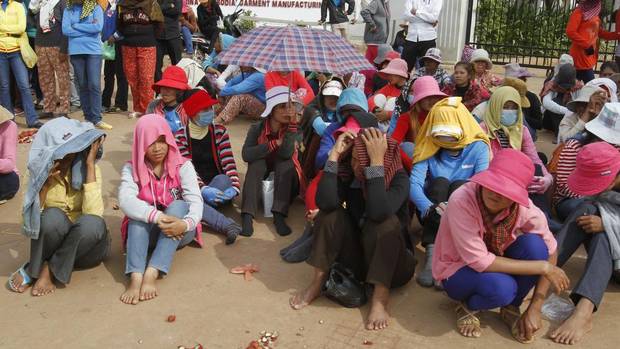Wilson Defends Child Labor
Lululemon was founded in 1998 by Chip Wilson with the reputation of being an “ethical brand” that used local, Vancouver-based labor with a “vision is to elevate the world from mediocrity to greatness by embracing social, environmental and economic health in every party of our organization and in all our global communities.” Its reusable bags with its motivational sayings capture the company manifesto:
 However, with the success of the company, its economic environment changed forcing them to compete in the global market. To stay competitive in the garment industry, Lululemon had to outsource its production to Asia. This called in to question its ethical standards in regards to overseas factories and treatment of its workers. In 2005, at the Business Alliance of Local Living Economies, founder and CEO Chip Wilson promoted the benefits of child labor and outsourcing in Asia to the dismay of many. Wilson told the delegates of the BALLE BC conference that “third world children should be allowed to work in factories because it provides much-needed wages.”
However, with the success of the company, its economic environment changed forcing them to compete in the global market. To stay competitive in the garment industry, Lululemon had to outsource its production to Asia. This called in to question its ethical standards in regards to overseas factories and treatment of its workers. In 2005, at the Business Alliance of Local Living Economies, founder and CEO Chip Wilson promoted the benefits of child labor and outsourcing in Asia to the dismay of many. Wilson told the delegates of the BALLE BC conference that “third world children should be allowed to work in factories because it provides much-needed wages.”
Unfortunately, Wilson’s defense of child labor in overseas factories showed a sheer lack of understanding of the overseas manufacturing practices and caused great uproar from the publics.
“He was really raising a grey area, and didn’t address the other issues, like where these kids are living, what they’re being paid, if they’re going to school, if they’re being taken care of in those other ways.”
In public relations systems theory explains the relationships between an organization and its publics, and how an organization adapts to the interrelated political, economic and social environments in which they operate. These environments can be internal or external. The systems can be open or closed systems. An open system uses public relations to get feedback, while a closed system does not seek external information but relies on history and the preference of decision makers. In systems theory, understanding the stakeholders affected and keeping them positive about the organization is crucial for success.
Economic and social environments for Lululemon’s overseas production are interrelated. Lululemon was forced to globalize and outsource due to a changing economic environment that demanded the use of Asian garment factories in order to stay competitive. At the same time, however, the shift in the social environment has created higher consumer standards that hold organizations accountable for the maintenance of its overseas factories, including fair wages and good working conditions. To understand consumers cry for greater corporate responsibility, we can look at a 2013 study showing 26% of consumers of a Canadian clothing company with production in one of the ruined Bangladesh factories said “they would no longer purchase the line after the disaster.”
After Wilson’s statements caused uproar, Lululemon used an open system to get feedback. Though Wilson’s statements were made in 2005, the pre-Twitter and pre-smart phone era, various modes of communication outlets revealed the publics dissatisfaction with the company. Because the feedback was negative, the company took action in two ways to improve relationships with its various publics including consumers, investors and factory workers:
- First, it “hired former MEC auditor Kerri McKenzie, as its production manager” to develop a code of conduct for the company’s overseas operations.
- Next, it hired a third party auditor, Verité, to monitor Lululemon’s international business operations (Duveau). Verité is a fair labor company whose “mission is to ensure that people around the world work under safe, fair, and legal conditions.”
Lululemon’s actions sought to modify its internal environment in order improve public relations. By hiring a skilled production manager and using a third party auditor whose sole mission is to promote fair labor throughout the world, Lululemon sent a message to its publics that shows its concern with fair labor practices and desire to uphold the ethical standards from which it originated.
In regards to her boss’ statement about child labor, McKenzie was quoted saying, “I can’t answer for the man, he’s misunderstood in his own way.” In other words, she will do her best as a production manager to monitor its overseas operations and ensure that all workers are receiving the benefits they need and deserve. This is precisely what Lululemon’s stakeholders wanted to hear, and has helped keep the organization in good public standing.
By: Daniella Stach
Sources:
http://sustainability.lululemon.com/our-sustainability-vision/
http://www.lululemon.com/about/manifesto
http://thetyee.ca/News/2005/02/17/LuluCritics/
http://www.theglobeandmail.com/report-on-business/international-business/asian-pacific-business/labour-woes-in-asia-the-latest-snag-for-lululemon/article12762550/
http://verite.org/what-we-do

